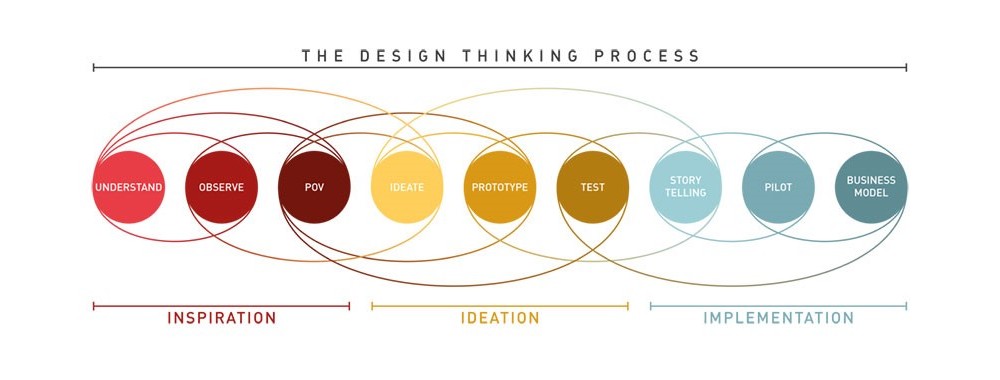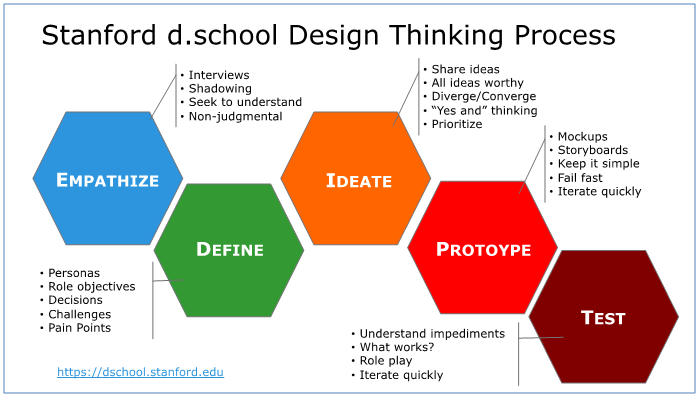I find teachers’ instructional design and delivery processes fascinating. Most of us will have, at one time or another, been expected to create fleshed-out lessons plans using one kind of a template or another, and yet few (any?) of us use this as a way to design and deliver learning experiences day to day (unless required from above). What, then, are we doing? What are our processes?
Currently, I am thinking that we may be best understood as designers. There are a number of visual representations of the design thinking process (see below). All of them share a similar trajectory, or cycle, from a state of learning, to ideation, to testing, and back. This, to me, feels like a simple yet insightful and fairly thorough framing for what we do as teachers. We empathize with our learners, and try to figure out what kind of experience, activity, space, and so on will allow our learners to achieve a target end goal, or defined problem. We have students go through these experiences, we observe, we assess, and we revise our initial understanding and our initial design. On and on.
What changes if we think about ourselves in this way? For one, it becomes clear how Rodriguez’ five areas of teaching awareness – of our learners, our context, our interactions, best practice, and ourselves as teachers – are fundamental to the rest of our work as teachers. It also becomes interesting to think about which practices directly inform and enhance each stage of our design thinking, and which practices do not?
In other words, does thinking about our work as design work help us better evaluate our pedagogical choices?



@lsmith,
Loved our talks at the 3rd F2F. There are a few philosophies I’ve been interested in over the years that have not only informed my pedagogical “design” of SiTE Schools, but may also help to unite all the disparate strands of 20th century education philosophy which, as you intuited, are often emphasized differently in teacher training.
The first model is called Integral Education:
http://nextstepintegral.org/branches/education/what-is-integral-education
A more widespread model is Constructionism (not to be confused with Piaget’s constructivism):
https://www.igi-global.com/dictionary/constructivism-theory-in-technology-based-learning/5455
Another movement I’ve been influenced by is MetaModernism: https://www.researchgate.net/publication/269831669_Towards_a_Meta-modern_Paradigm_of_Curriculum_Transcendence_of_a_Mistaken_Reliance_on_Theory
I don’t believe either of these theories are taught widespread in Teacher’s College, yet they represent the current state of philosophical debate and therefore may yet help education to redefine itself in the 21st century.
Let’s keep the conversation going.
Eric
These look awesome! And YES, this conversation needs to continue!